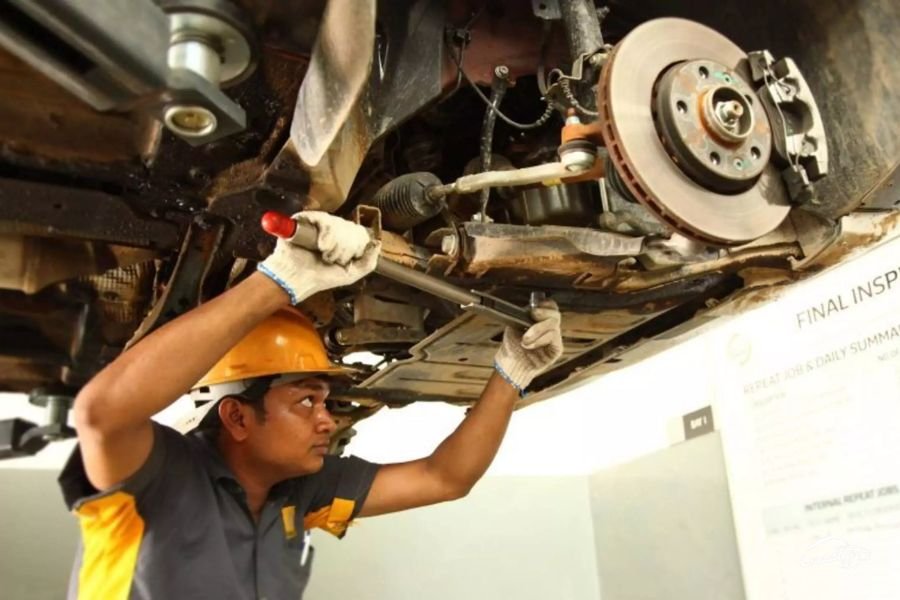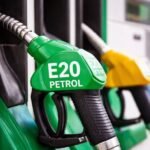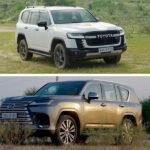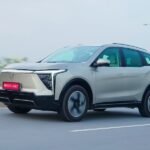With the tightening emission norms and fluctuating fuel prices, the Indian automotive market is witnessing a shift in buyers’ preferences. While diesel still powers 3/4th of India’s transport sector, the recent data shows its demand growth slowed to the lowest since the COVID-19 pandemic in the last financial year, reflecting a gradual shift towards cleaner means of transportation, like petrol, CNG, hybrid and EVs.
While diesel vehicles have been a long-time favourite for their torque and efficiency, some brands like Maruti, Honda and Toyota are projecting hybrid vehicles as a feasible alternative to the diesel cars, thanks to their high torque output and fuel efficiency. So, now the big question is, which one should you buy? To help you make an informed decision, we have evaluated both powertrains on various parameters.

Performance
- Diesel engines are known to deliver strong lower-end torque than their petrol counterparts, making them ideal for highway cruising and heavy load carrying applications. However, the engine noise and vibrations remain their general characteristics compared to petrol and hybrid engines.
- Hybrid engines (especially strong hybrid and plug-in hybrid) deliver smooth and quiet acceleration, especially in city conditions. However, they might feel less responsive at highway speeds. Nevertheless, they excel in offering a relaxed drive with seamless e-CVT gearboxes and better weight distribution, making them ideal for urban commutes.

Fuel Cost and Running Cost
- Diesel vehicles generally offer higher fuel efficiency on highways (20-30% better mileage than petrol), making them a preferred choice for buyers with high monthly running. But their advantage narrows in cities due to rising diesel costs and higher maintenance (DPF/SCR system upkeep).
- On the other hand, hybrids (mainly strong hybrids) deliver better fuel efficiency in city conditions through regenerative braking and EV-only mode. Hence, they are more cost-effective in start/stop traffic.

Purchase Cost and Incentives
- In the BS6 era, the diesel variants of any vehicle usually command a premium of around Rs 1.5 – 2 lakh over their petrol counterparts. For reference, the Creta E petrol costs Rs 11.11 lakh, while its diesel version comes at Rs 12.69 lakh (both prices ex-showroom), making it Rs 1.58 lakh more expensive than the gasoline trim.
- Strong hybrids are still relatively expensive due to advanced tech and battery systems. For reference, the price difference between the Toyota Hyryder’s S petrol and hybrid variants is Rs 2.7 lakh. That gap is way more than the diesel models. However, some state governments (like Uttar Pradesh) offer tax benefits and incentives on hybrid vehicles, slightly narrowing the price difference.

Maintenance and Long-term Ownership
- Diesel engines require more frequent servicing and higher routine expenses due to complex emissions systems like DPF/SCR requiring periodic cleaning, along with costly turbocharger or injector replacements after 1.5 lakh kilometres. DPF (Diesel Particulate Filter) maintenance is also a concern, especially for those who drive mainly in the city.
- In contrast, hybrid vehicles typically incur lower annual servicing costs, with fewer mechanical wear items and extended brake life due to regenerative braking. Battery replacement is a long-term cost, but most are covered by 8-year warranties.
- Having said that, the hybrid proves to be more economical for city commuters with reduced maintenance, while diesel may require more care, especially with newer BS6 norms.

Environmental Effect
- Despite stricter emission norms, diesel still emits more NOx and particulate matter, making it less environmentally friendly. On the other hand, hybrid vehicles, thanks to electric motor support, significantly reduce CO2 emissions.
Also Read: 2025 Maruti Grand Vitara: Strong Hybrid Now More Affordable; Safety Improved

Future Readiness and Resale Value
- With a growing push for cleaner mobility solutions and stricter emission regulations, the future of diesel looks uncertain. Some cities have already restricted the usage of diesel vehicles after 10 years, which also depresses long-term resale values. However, they currently hold a 5-7% edge for SUVs and commercial models in other areas, especially rural areas, with less strict norms.
- Hybrids are considered a cleaner transition technology before going fully electric. They are also expected to hold better resale value than EVs.
Must Read: Electric Cars and Resale Value: A Smart Investment or a Risky Bet?

Final Words
If you are a high-mileage driven, frequent highway traveller, a diesel car will make more sense to you. But city drivers looking for lower running costs without going fully electric, a hybrid is a smarter choice.
In a nutshell –
- Choose diesel if: You prioritise low & mid-range punch, drive mostly on highways and enjoy mechanical feedback.
- Choose hybrid if: Refinement is your top priority, and city usage is very high.
Also Read: Maruti Fronx To Get Strong Hybrid Engine – More Mileage, More Power!








